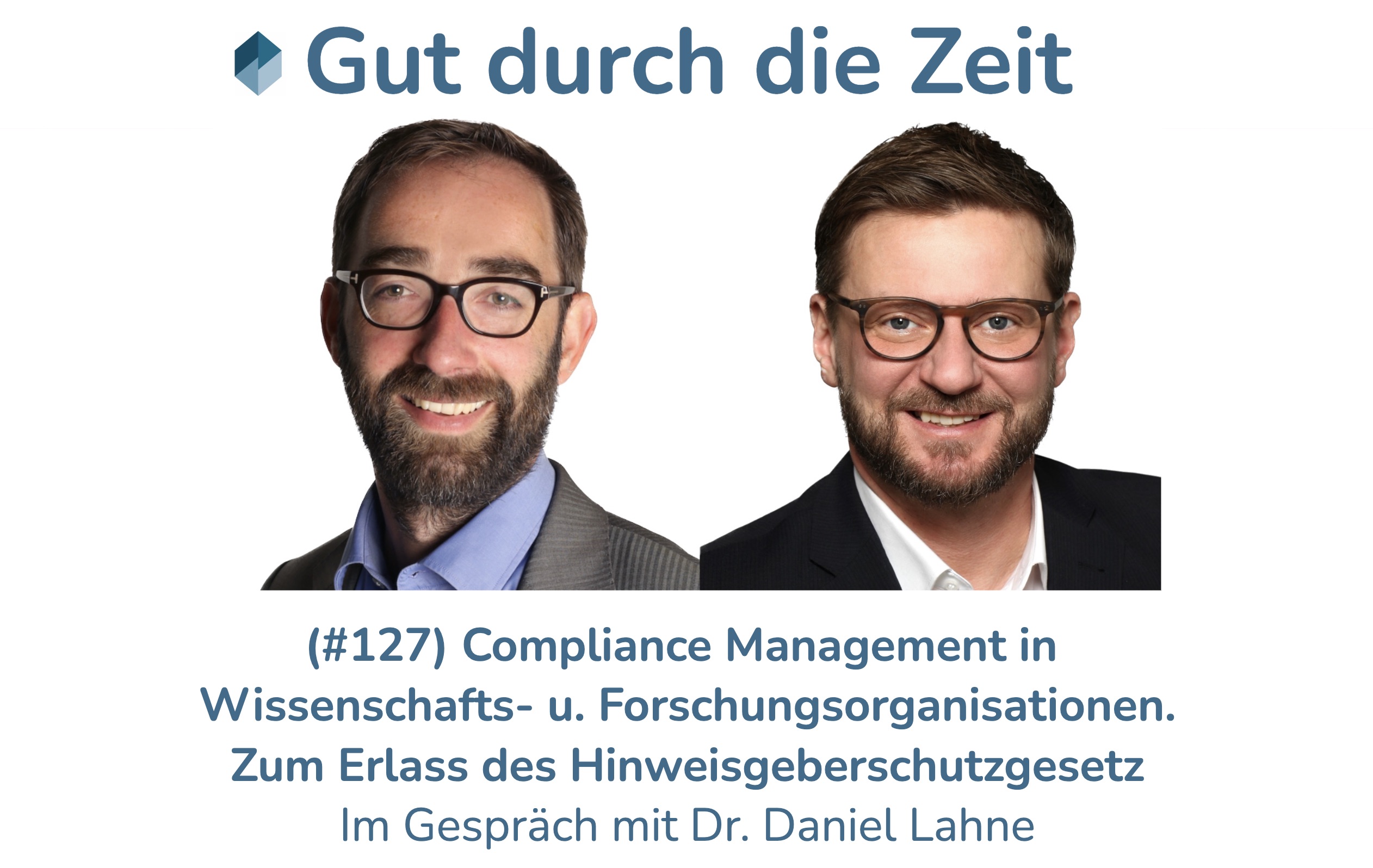INKOVEMA Podcast „Well through time“
#127 – Compliance Management in Scientific and Research Organisations.
On the enactment of the Whistleblower Protection Act. In conversation with Dr Daniel Lahne
Well through time. The podcast about mediation, conflict coaching and organisational consulting.
Dr Daniel Lahne, long-standing Head of Legal & Compliance at Helmholtz Zentrum München (until 2023); permanent member of the Ethics Committee of TU Munich, since 2023 Fraunhofer-Gesellschaft, responsible for compliance management, former Managing Director of Infrafrontier GmbH, expert in compliance and ombudsman services in science management as well as international contract drafting and negotiation in matters of funding law.
Contents:
The EU Whistleblower Directive, which was adopted in December 2019, and the Whistleblower Protection Act based on it, which has now been enacted and will come into force in June 2023, have an impact on research organisations and scientific organisations. Both regulations oblige these scientific and research organisations, among others, to set up appropriate mechanisms and channels to receive information on violations of EU law. We have already discussed the details with Sebastian Steeck from Diakonie Leipzig here in the podcast (#121).
This directive and the Whistleblower Protection Act are closely linked to the Compliance management which is responsible for compliance with laws, regulations and internal guidelines in our organisations. Effective compliance management ensures that ethical standards are adhered to, risks are minimised and violations of laws and regulations are prevented or detected at an early stage.
The establishment of communication channels in accordance with the Whistleblower Directive and the Whistleblower Protection Act is an important part of an effective compliance management system. By creating secure and confidential channels, they enable employees to report violations of EU law or other unlawful acts without having to fear negative consequences.
The Whistleblower Directive also emphasises the protection of those who report breaches. It is important to ensure that whistleblowers are protected from retaliation in order to encourage open and transparent reporting of breaches. Ban on reprisals.
The implementation of the Whistleblower Directive and the establishment of suitable communication channels should also strengthen the compliance culture in scientific and research organisations. The aim is to encourage employees to raise concerns and report violations and, at best, to create an environment of trust and accountability. Whether and to what extent this will succeed in the coming years with the help of these regulations remains to be seen. Dr Daniel Lahne emphasises that this undertaking is certainly not a sure-fire success and will largely depend on the side effects of this legislation, i.e. the extent to which the legal requirements lead to attention and communication dynamics in the organisations that will have a positive impact.
For science managers, this is precisely the task of keeping the topic in the attention radar of employees. In this respect, these regulations should by no means only lead directly to reports and notices, but rather to training events, workshops, change processes and much more, so that the topic remains in the focus of attention.
The coming months and years will show to what extent the scientific and research organisations will take this issue seriously and stand up for it.





Leave A Comment